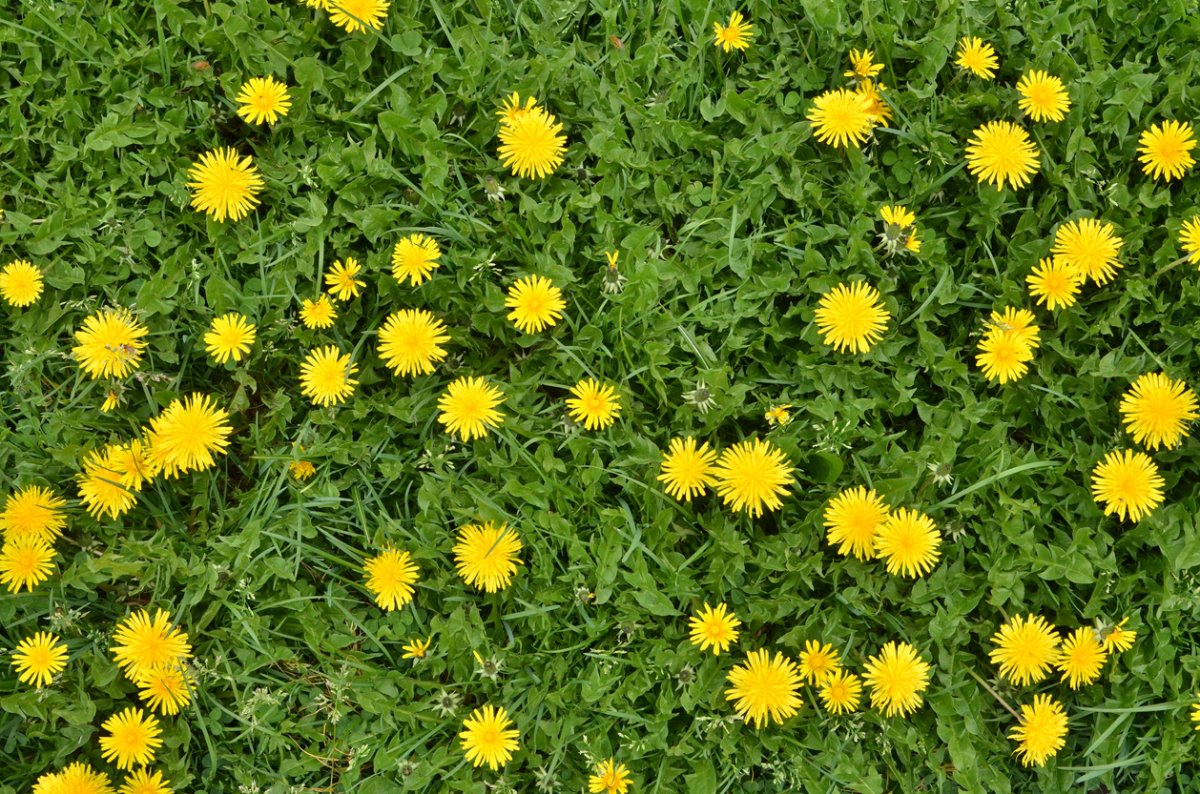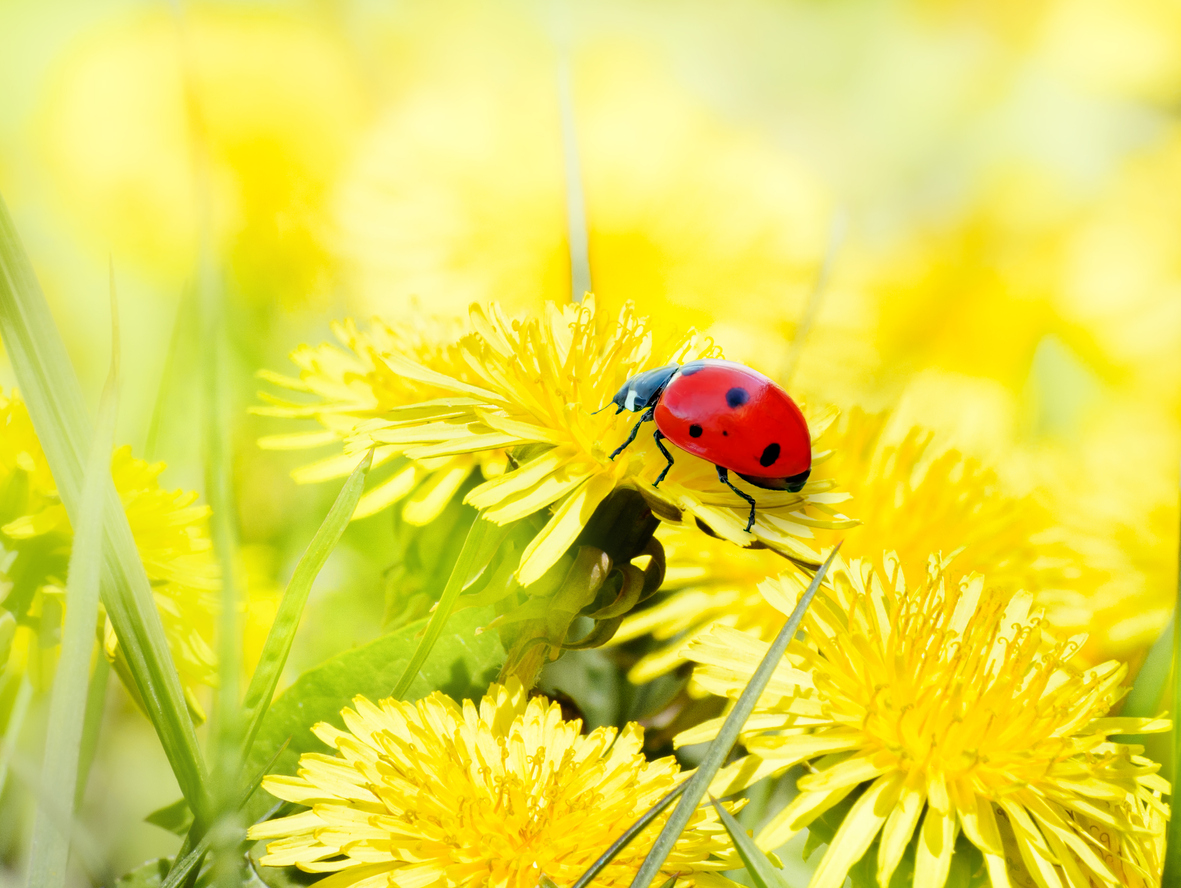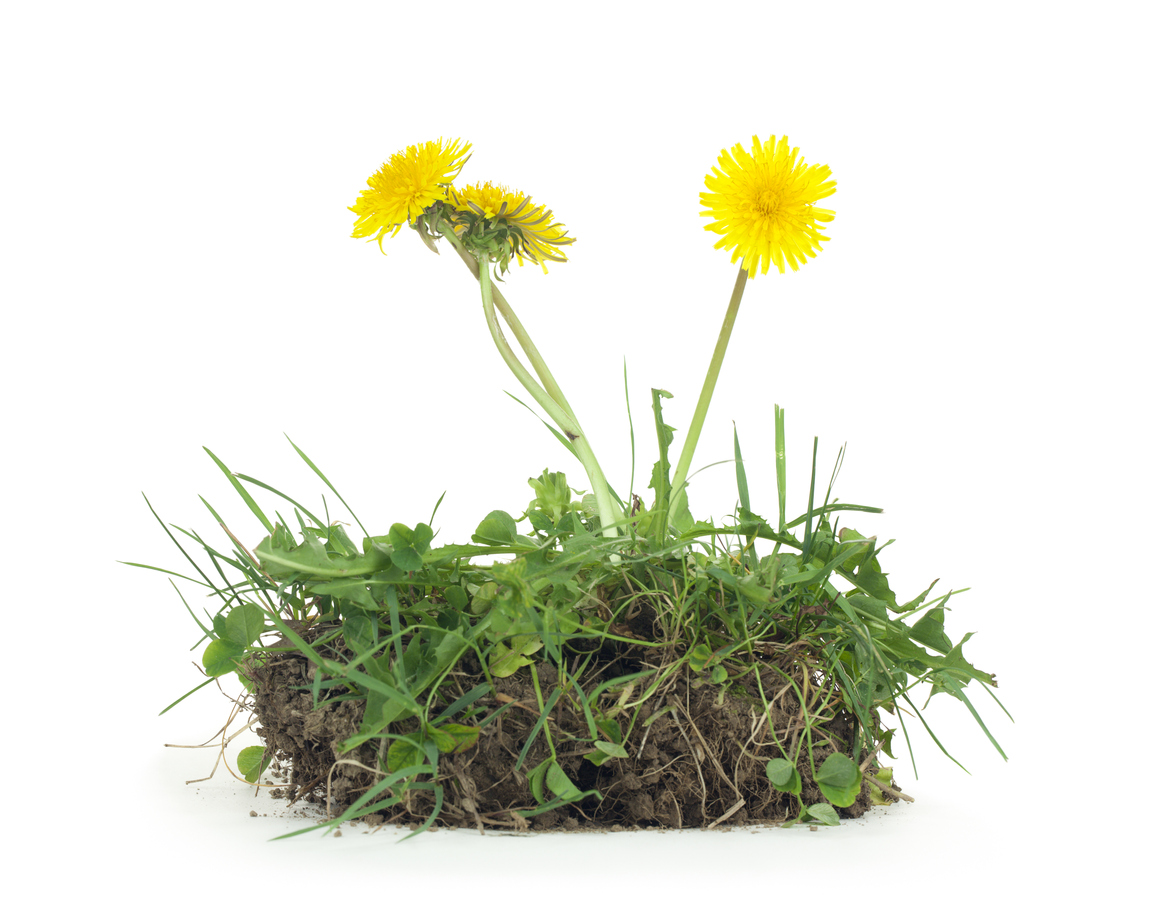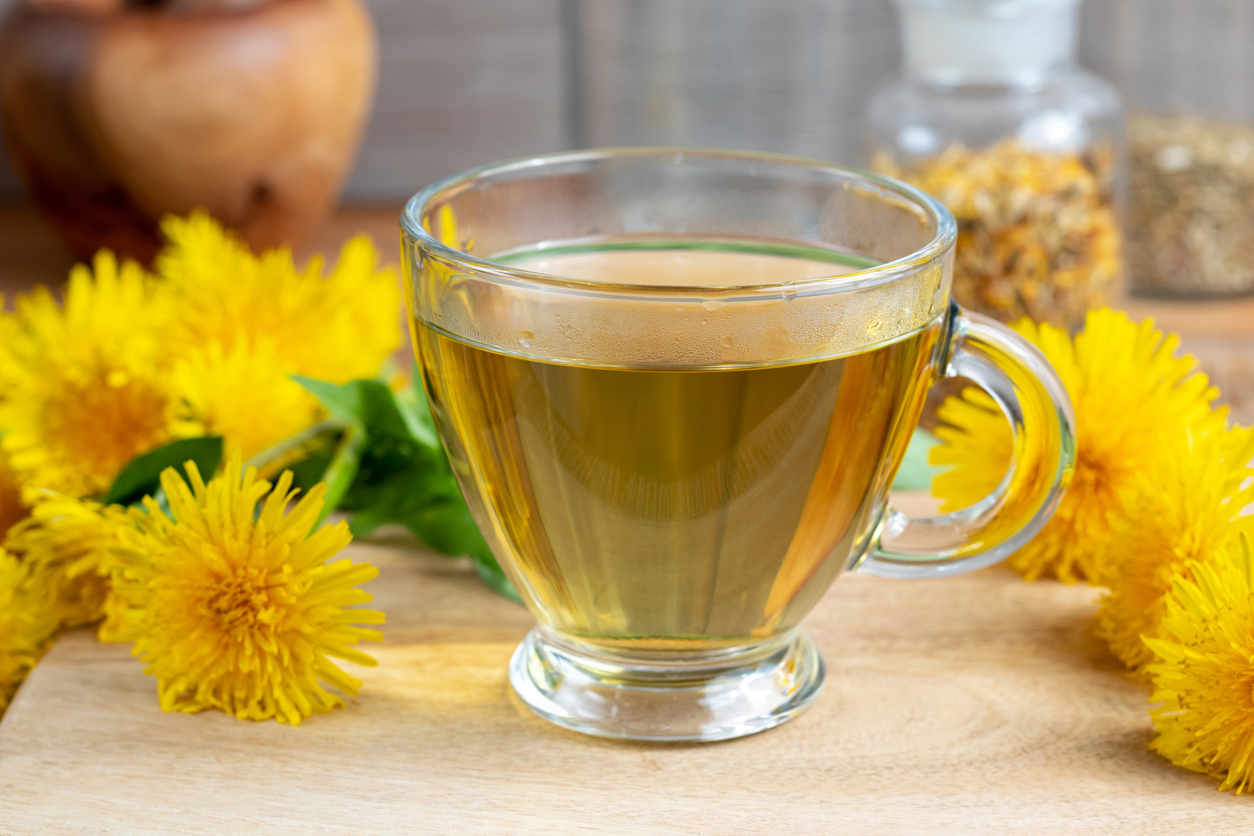

We may earn revenue from the products available on this page and participate in affiliate programs. Learn More ›
Most people turn their noses up at the swaths of yellow puffs that show up in the early springtime. To many, dandelions are intruders, weeds that ruin a perfect lawn, and an eyesore. To Ralph Waldo Emerson: “A weed is but a plant whose virtues remain undiscovered.”
Of course, some weeds, like the dreaded kudzu vine, are more destructive than others. But in many cases, a weed is only a weed because it’s in the wrong place at the wrong time. For instance, yummy mint grown outside of a container can quickly take over a garden, turning into a gardener’s worst enemy. Neatly relegated to a pot, it becomes a beloved kitchen herb.
Dandelions are similar. Sure, they multiply without thinking twice about the fact that they’re populating your lawn. But the weedy flowers have some benefits. Some might even consider them pretty to look at. Next time you’re tempted to mow over a patch of yellow-topped dandelions, you might want to pause because of these three good reasons to keep them around.
RELATED: Keep, Don’t Kill: 9 Weeds to Welcome

They’re food for beneficial bugs.
Despite what many people think, dandelions aren’t the first and only flowers to bloom in the spring. Crocus, hyacinth, and muscari, for instance, are other early spring flowers that serve as a source of food for pollinators. That said, because they spread so readily, dandelions are a welcome food source in areas where pollen and nectar are scarce.
Ideally, bees and other pollinators should have access to various flowers on which to feed because dandelions aren’t a high-quality food source. Planting a variety of native perennials with different bloom times ensures that pollinators have consistent access to food.
At the very least, it’s important to avoid spraying dandelions with pesticides and herbicides since this exposes hungry insects to harmful toxins and can even kill sensitive bees.
RELATED: 20 Flowers That Attract Bees to Your Garden
They help improve the soil.

Dandelions aren’t just a potential food source for beneficial insects. They also help improve the soil. Their long taproots are a reason gardeners find dandelions so hard to eradicate. However, the lengthy roots are also excellent soil aerators that help loosen up compacted soil. Just the presence of dandelions also alert you to potential problems with your soil, such as infertility.
They’re edible.
Yes, you can eat dandelions! Keep them around, harvest them, and take advantage of their numerous medicinal qualities. People commonly use the roots to brew tea, but the plant is edible from taproot to top. The nutritious weeds contain high amounts of vitamin A, C, and K, along with several minerals such as calcium.
Studies suggest that dandelions, apart from being full of good-for-you vitamins and minerals, also might help fight inflammation in the body, control blood sugar, and regulate cholesterol and blood pressure. Some people drink dandelion tea to help settle an upset stomach and treat constipation.
Careful, though. If you’re prone to springtime pollen allergies, you might want to handle dandelions with gloves to avoid a potential skin rash. Additionally, it’s best to talk to your doctor before taking any kind of supplement, homegrown dandelions included.

RELATED: The 20 Most Beautiful—And Useful—Housewarming Gifts for Any Budget
